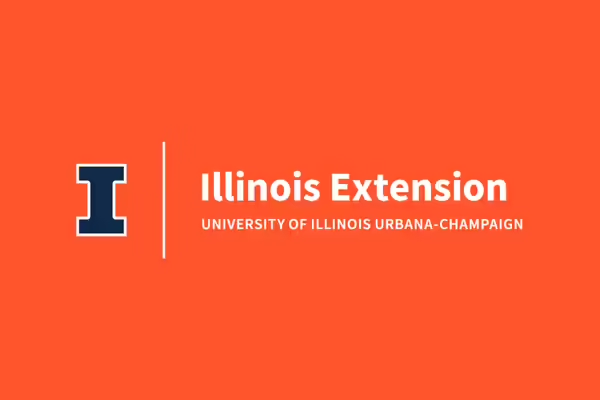
URBANA, Ill – A collaborative effort between the University of Illinois School of Social Work and Illinois Extension is working to address social inequities that negatively impact the vitality of the Illinois workforce. Researchers are seeking to use social and emotional learning in math and science classrooms to contribute to improved student grades and enhanced teacher effectiveness, while increasing interest in science, technology, engineering, and math (STEM) careers.
“Illinois has the fifth largest STEM workforce in the country, but Black and Latinx professionals represent only 11% of Illinois’ overall workforce and only 5% of the STEM workforce,” says Durriyyah Kemp, University of Illinois Extension social and emotional learning educator for Cook County. “This program is a great way to start to diversify and build a more diverse pool of future candidates.”
Social and emotional learning (SEL) focuses on building student self-awareness, self-management, social awareness, relationship skills, and responsible decision-making. This project provides the opportunity for teachers’ and students’ lived experiences to become the driving force for meaningful curriculum change.
“Teachers have described their students’ foundations as ‘upside down wedding cakes,’” says Kevin Tan, School of Social Work assistant professor. “Everything they’re trying to build with their students is being held up by a small foundation. Addressing the needs of these teachers is so important to us as a land-grant institution with responsibilities to the communities around us.”
The research team first conducted focus groups to determine the needs in middle and high school cohorts, then worked to ensure all staff understood the foundations of inequity through intensive professional development.
“Administrators and teachers were able to learn how to make equitable learning communities, how to understand SEL, and how to integrate it into subject matter,” says Kemp. “These sessions also included a deep dive into the importance of culturally relevant teaching with staff engaging in self-assessments to see how their own culture impacts their expectation for students and how they teach.”
Following the focus groups, researchers began bi-weekly coaching sessions as the teachers began actively implementing SEL lesson plans into their math and science classrooms. The coaching sessions helped the team to understand the teachers’ experiences and what was effective, along with areas to improve. The work and implications are also viewed through the lens of supporting teachers in a post-pandemic space.
“We’ve gone through a lot as a country in these past few years, and this has a big impact on young people and the work the teachers do,” says Tan. “Teachers are critical in creating change and they have more than just teaching on their plate; they are teaching students coping skills and how to socialize.”
The SEL curriculum provides 12 lessons that are structured and offer concrete examples to teach SEL concepts in classrooms. While the curriculum provides structure, the team knew that it also had to be adaptable to be truly impactful.
“We knew we need to provide teachers with cultural adaptation options,” says Tan. “We didn’t want something with just one cultural perspective that couldn’t be adapted for that particular classroom situation.”
This research also aligns with Extension’s commitment to provide practical translations of cutting-edge research to help people, businesses, and communities find answers to some of the most pressing issues of the modern world.
“This work is incredibly important,” says Shelly Nickols-Richardson, associate dean and director of Extension. “Tapping into personal thoughts and emotional experiences to bring empathy for others as individuals and teams solve complex problems is necessary for including diverse audiences in STEM-related fields and for the workforce of tomorrow.”
The initial round of the research will move into a formal evaluation phase at the start of the next school year to see how the program has affected positive student and academic outcomes as well as any racial healing components.
WRITER: Carissa Nelson, Media Communications Manager, Illinois 4-H
SOURCE: Kevin Tan, University of Illinois School of Social Work Assistant Professor
SOUCE: Durriyyah Kemp, Illinois Extension Cook County Social & Emotional Learning Educator.
ABOUT EXTENSION: Illinois Extension leads public outreach for University of Illinois by translating research into action plans that allow Illinois families, businesses, and community leaders to solve problems, make informed decisions, and adapt to changes and opportunities.